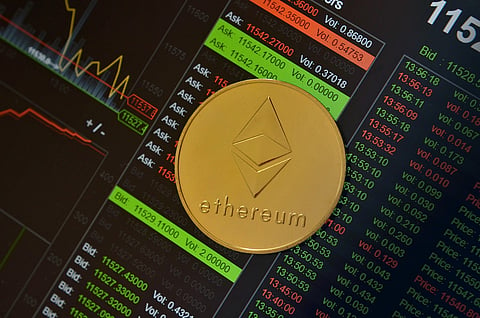

We have launched Cryptogram, an India-focused free weekly newsletter on blockchain tech, global crypto markets, and Web 3.0 technologies which promise to change our future. If you would like to subscribe to this newsletter, click here. You can read our past editions here.
The adoption of blockchain is vastly growing across the globe as many countries and entities are experimenting with the technology to come up with different use-cases in various industries. With India’s hopes of becoming a $5 trillion economy by 2024-2025, experts believe the blockchain technology might play an integral part in its journey. In today’s article, we look at the basic definition of smart contracts, how they work and how they can transform business in the future.
In simple terms, a smart contract is a self-executing contract with the terms of the agreement between buyer and seller or two parties being directly written into lines of code. It is basically a piece of code that does something and this triggers an action. The most common smart contracts are written on the Ethereum blockchain using solidity.
Long before bitcoin originated, Nick Szabo (a scientist and a cryptographer) wrote about smart contracts to be used to store contracts on a distributed ledger in 1997 using vending machines as an example, that eliminates a middleman. He stated “New institutions and new ways to formalize the relationships that make up these institutions are now made possible by the digital revolution. I call these contracts ‘smart’, because they are far more functional than their innate paper-based ancestors”
In simpler terms, a smart contract receives payments from users or entities through what’s known as gas fees and transactions are self-executed through computer code once the predetermined conditions are met. These codes are usually stored and executed on a Blockchain such as Ethereum to make it secure.
The old PCO telephones that we used to see across shops and streets in earlier days can be used as a good analogy to a smart contract. They are programmed in a way to allow certain transactions based on the input, in this case a one-rupee coin and also works in a fully deterministic way. The telephone will be programmed to disconnect automatically after the stipulated time and the user needs to feed another coin to prolong the connection.
A smart contract can actually become a common practice for real estate transactions in the near future. In traditional contracts, banks, brokers and lawyers have always been part of the traditional real-estate ecosystem. However, new avenues to trade real estate such as enabling trading platforms and online marketplaces that can function efficiently can be built on a blockchain. Blockchain also expedites contract processes, saves time and reduces costs.
A smart contract relies purely on the information available in the block chain. Ethereum, Solana and Polkadot are the widely used blockchains to create a smart contract for projects since the advent of this technology. Tech giants such as TCS, Wipro, Capegemi are already leveraging the technology to build cutting edge solutions to enable digital transformation for multiple industries.
Although smart contracts come with lots of upsides, they do have certain shortfalls. Irreversibility in the structure of the contract or any error can become an expensive and time-consuming process to rectify. Another point to ponder is that, the legal and regulatory aspect of a smart contract must be investigated thoroughly before they get implemented. Despite the limitations, with innovation and regulatory clarity, smart contracts can play an integral part in all our lives.
Use promocode TNM51 at www.giottus.com/profile#promo after registration to get Rs.51 worth free Bitcoin.
Disclaimer: This article was authored by Giottus Crypto Exchange as a part of a paid partnership with The News Minute. Crypto-asset or cryptocurrency investments are subject to market risks such as volatility and have no guaranteed returns. Please do your own research before investing and seek independent legal/financial advice if you are unsure about the investments.